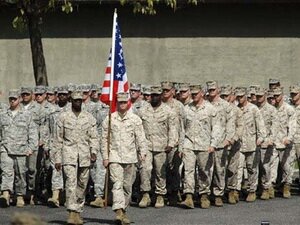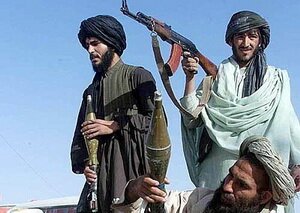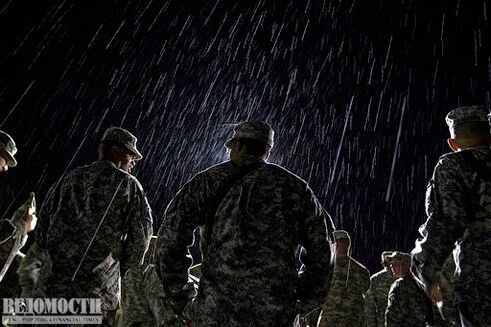
Commenting on the USA leadership’s decision to withdraw American troops from Afghanistan, analysts are unanimous in their opinion: the effects will be noticeable not only for the Asian region. One way or another, but the processes that occur in connection with the "reformatting" of Afghanistan will touch Ukraine too. The site ForUm has posted an article "The Butterfly Effect, or Afghan 2014 demobilization”, in which its author, Yu. Artamoshchenko sums up points of view of Ukrainian analysts on this matter. The President of the Independent Analytical Centre for Geopolitical Studies "Borysfen Intel", V.Hvozd, answering a reporter's questions, said the following:
 |
|
The situation after the Afghan "mustering out" of the Coalition forces, will clearly affect the security and military-political situation not only of the Central Asian region, but of the world at large http://www.trend.az/ |
- We know that nothing in the world arises out of nowhere and disappears into nowhere - the same applies to events around Afghanistan. Before moving on to direct hypothetical challenges and threats that may affect Ukraine after the withdrawal from Afghanistan of the troops of the USA and Coalition in 2014, we need a dotted line "run" on the subject. The situation after the Afghan "mustering out" of the Coalition forces, will clearly affect the security and military-political situation not only of the Central Asian region, but of the world at large. There is no doubt about this! Best of all are aware of this major geopolitical players, trying to play today on the “Afghan chessboard”. And what is remarkable: each is trying to play according to his own rules. Although the United States have not managed to agree with the Afghan Government over the number and status of the remaining after the withdrawal of troops from Afghanistan, US personnel (either 10,000 or 16,000 people, or some other number), still there is a hope that with the support of these professionals the Pro-Government forces will be able to control the country. After the complete withdrawal, a large-scale civil war for control of the country is sure to break out, in which the movement "Taliban" will act against the Karzai’s Government (and this is confirmed by the recent unsuccessful negotiations between these parties in the Qatari city of Doha), as well as the North of Afghanistan will get into combat with the Afghan South.
 |
| The movement "Taliban" will act against the Karzai’s Government http://warsonline.info/ |
We must be prepared for destabilization of the entire military-political situation in Central Asia: clearly in this conflict will get involved both, Uzbekistan and Tajikistan. Even if they do not do it by their own will, they will be covered with the humanitarian disaster, with tens of thousands of refugees, and not just from Afghanistan, trying through Russia and Ukraine to get into Europe. And Europe is already moaning from the so-called Islamization and for a long time has been trying to somehow withstand the adversity in its European home.
Iran... is undoubtedly applauding the withdrawal of the US troops from the region, because it can breathe a sigh of relief as the Americans leave the Eastern bridgehead, which potentially could be used in case of large-scale military actions against Iran "to stop the production of nuclear weapons." On the other hand - after the withdrawal of the Coalition’s troops, Iran will be able to increase its influence in the Western part of Afghanistan, which, in turn, will lead to a new round of tension between Sunnis and Shiites, the relationship between them even now being far from ideal. That is exactly what we see in Iraq and Syria, in the relations between the countries of the Persian Gulf, Saudi Arabia and Iran.
That is, the degree of the Middle East will rise even higher. And then there is already an economic issue: the price of oil and liquefied gas, their transportation. Remembering that the Middle East region is directly linked to the Black Sea –Caspian one, we should take into consideration the escalation of the situation around the Iranian nuclear program. Important are also issues of security of Middle East energy resources, particularly in light of Ukraine's diversification of sources of supply of oil and gas, which is a challenge for national security in general, and for the economy in particular.
Special attention should to be paid to Pakistan and India: Pakistan has historically been a major player in the region, and today it not just claims, but also demands that no issue on settling the situation in Afghanistan should be solved without Pakistan. Especially sharp are Pakistan’s relations with India after the latter so actively tried to interfere in the political and economic life of the country during the reign of Karzai. Therefore, India more than anybody else, is interested, that after the withdrawal of troops from Afghanistan in 2014, and especially after the next Presidential elections in the same year (twice Karzai has been elected, for the third term he cannot claim), in those lands remain peace and stability. Otherwise, it will lose a lot…
Analyzing the situation, we cannot ignore China, which is interested in security in Afghanistan just in one aspect - resources and reliability of transportation of Central Asian energy carriers: China considers itself a leader in the Asian region, and now, with the new leadership of the country, China took a swing at a new height - to become the world leader of the USA level. Therefore, security in Afghanistan, China sees first of all through an economic lens. And according to the ancient Chinese stratagem, China will simply “watch the fire from the opposite bank," watching, how in case of aggravation of the military-political situation in Afghanistan, will behave opponents or allies, and then will use the situation in its own interests.
...The answer to the question whether in the withdrawal of troops from Afghanistan there is any threat to Ukraine, the answer is unequivocal: "Yes". Mind you: illegal migrations are always used by various extremist Islamic organizations and movements such as "Al-Qaeda" and others. Therefore, the current geo-strategic position of our area can be used for different kinds of activities, from "settling" militant groups for further actions in Europe and in the Black Sea-Caspian region, to attempts to destabilize the situation in the Crimea. We should have no illusions about our possible problems.
 |
|
Ukrainian officials should seriously get prepared for the withdrawal of the US and NATO troops from Afghanistan in 2014 http://www.vedomosti.ru |
...Despite the fact that Ukraine is far from Afghanistan, and positions itself as a non-aligned state, it is necessary to take into consideration that our country did not just support the anti-terrorist operation in Afghanistan, providing its airspace and heavy aircraft AN-124, but also sent there, though small, but still a military contingent... Besides, there are other “chess-players”. For example, Russia and the countries of Central Asia. In the context of security we have just mentioned them. But there is one more thing: today one of the largest illegal drug trafficking passes through their territories, and then, respectively goes through Ukraine (taking into consideration its developed marine infrastructure), the Baltic countries to Europe. Should we consider this as a challenge to Ukraine? Definitely!".
Taking into consideration all the above said, Ukrainian officials should seriously get prepared for the withdrawal of the US and NATO troops from Afghanistan in 2014. At the very least, to be aware of what challenges and threats can arise before the Ukrainian state, when events in the Post-Coalition Afghanistan begin to unfold according to this or that scenario.

